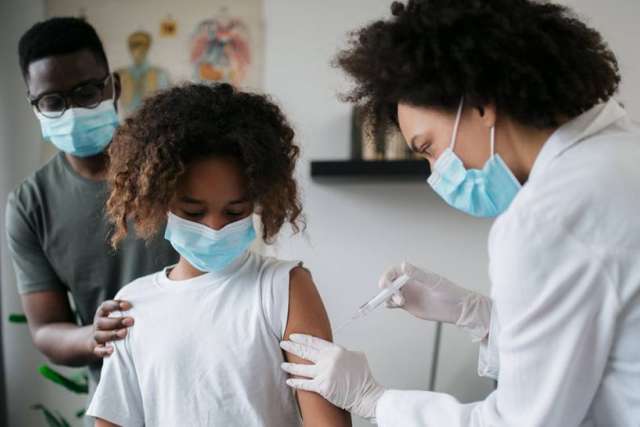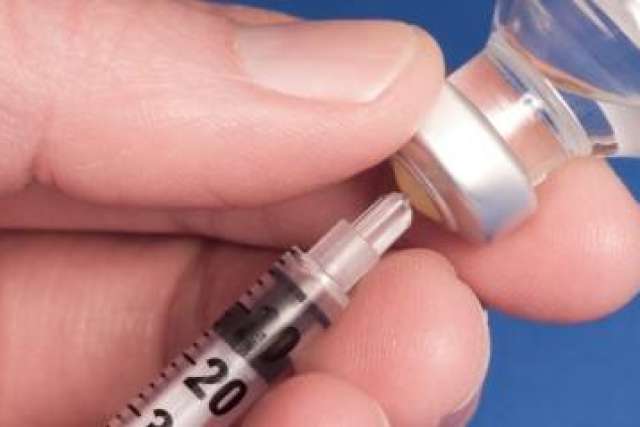Now that Pfizer’s COVID-19 vaccine for children ages 5 to 11 has received emergency use authorization from the U.S. Food and Drug Administration and endorsement by the Centers for Disease Control and Prevention, shots could begin going into youngsters' arms this week.
But how did we get here? What processes led experts to say this is a safe and effective vaccine for young children?
Annabelle de St. Maurice, MD, MPH, a pediatrician and infectious disease expert at UCLA Health, explains the rigorous vetting and testing required to make a vaccine available to the American public.
“There are no medications that are studied more, and more rigorously monitored, than vaccines,” Dr. de St. Maurice says.
Phases of testing

New vaccines undergo multiple phases of study and testing in gradually larger populations before being made available to the public at large, she says.
It begins with pre-clinical studies, Dr. de St. Maurice says, with formulations tested in animal models to make sure there are no safety concerns and to see if some level of immunity can be established.
From there, a drug company submits an application to the FDA for an investigational new drug. Then, phase one of clinical trials begin, with a small group of human volunteers, maybe 20 to 80 people, receiving the new vaccine. Scientists check for safety and immune response before moving onto the second phase of the trial, which includes more volunteers.

Phase two and phase three of the clinical trial include a much greater number of volunteers and the use of a placebo to compare outcomes. Participants are randomized to receive either the placebo or the vaccine. Pfizer began the third phase of clinical trials for its COVID-19 vaccine for adults in July of 2020. It received emergency use authorization from the FDA in December, 2020, which allowed for widespread administration. The vaccine received full FDA approval in August of 2021 for people 16 and older.
Similarly, Pfizer’s COVID-19 vaccine for children ages 5 to 11 underwent these same clinical trial phases before receiving emergency use authorization from the FDA on Oct. 29. Pfizer’s clinical trial included about 2,250 young volunteers, Dr. de St. Maurice says, about 1,500 of whom received the vaccine and 750 who were given a placebo.
“Scientists look at how many people got COVID in the vaccine group and the placebo group and they also look for adverse effects,” she says. “They follow up them up for adverse events and efficacy data.”
Results closely monitored
More than 400 million doses of COVID-19 vaccines have been given to more than 200 million people in the United States to date, Dr. de St. Maurice says. The Pfizer vaccine is the most frequently administered.
“That’s just a staggering number,” she says. “The safety of these vaccines has been studied, both before being licensed and after receiving emergency use authorization in these 200 million or so individuals. We have been following them to detect whether or not there are any serious adverse events that might be rare and weren’t detected in the clinical trials.”
The Pfizer COVID-19 vaccine formulation for children ages 5 to 11 is a smaller dose — one-third the amount given to people age 12 and older. This dosage was determined in an early phase of the clinical trial, Dr. de St. Maurice says, and was found to produce an immune response similar to that seen in older children receiving the full dose.
Safe and effective
As the vaccines become available, Dr. de St. Maurice urges parents to have their kids vaccinated as soon as they can. Children can contract COVID-19 and potentially experience serious outcomes, such as Multi-system Inflammatory Syndrome.
“This vaccine has undergone very rigorous evaluation,” Dr. de St. Maurice says. “Parents should rest assured that a lot of thought, a lot of effort, and a lot of scientific review has gone into authorizing this vaccine for emergency use and recommending it to children. This vaccine has been studied in thousands of volunteers who have participated in clinical trials, which included a number of diverse populations.
“It's clear to me that these vaccines are safe, they're effective and that they will help our children get protected from serious consequences of COVID-19.”
Keep up to date on the latest COVID-19 news.
Schedule an appointment with a UCLA Health pediatrician to help answer any questions about the COVID-19 vaccine in children.




